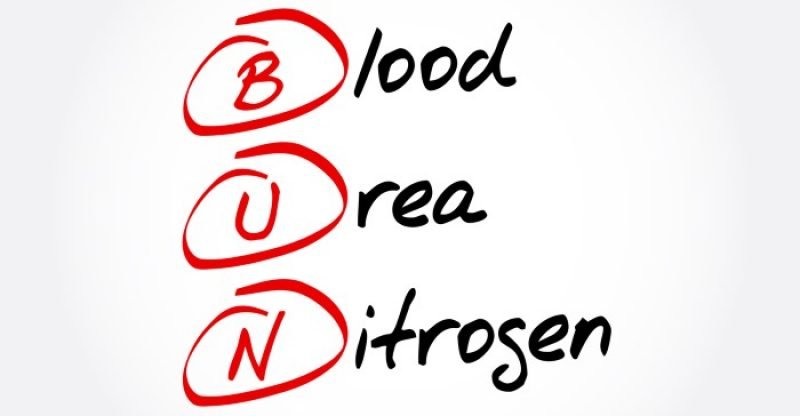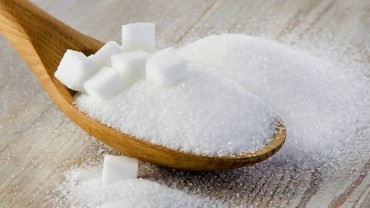Causes of Low or High Blood Urea Nitrogen (BUN)
Are you worried about your kidney or liver health?
One way to learn how well these organs are working is a common blood test called a blood urea nitrogen (BUN) test.
When you get a BUN test, your doctor will look for the amount of BUN in your bloodstream.
It is important to know if your levels are balanced, as a high BUN could mean that you are having issues with your kidney or liver (1).
Taking a BUN test is part of learning about your body, and getting useful information to help solve issues with your organs before symptoms get worse (2).
What is Blood Urea Nitrogen?
BUN shows the amount of urea in your blood.
Urea is a waste product from the digestive system after eating protein.
Urea is typically a safe way to get rid of excess nitrogen from the body. Urea comes from your dietary protein and tissue protein turnover.
In a normal diet, human bodies produce about 12 grams of urea daily (3).
However, the bulk of urea, equaling about 10 grams per day, is flushed out by the kidneys.
A small amount of urea can also be lost through the gut, skin, and lungs.
For example, when you exercise, a substantial amount of urea may be flushed out through your sweat (4).
When doctors test your BUN numbers, they are looking for the balance between urea production in the liver, and urea breakdown and elimination in the kidneys.
This is why these tests are performed to test your kidney and liver health (5).
In some cases, testing creatinine levels is a better indicator of kidney function.
This is because the BUN is more likely to be affected by dietary and physiologic conditions that are not necessarily related to your kidney function (6).
How Urea is Created
As you eat a dietary protein such as poultry or fish, it moves through your small intestine and into the large intestine.
The protein breaks down into amino acids and other elements inside of the liver, where it also becomes urea.
The urea then travels out to the kidney to create urine and be flushed out of the body (7).
Why is the BUN Test Given?
Any standard BUN blood test will typically also include a BUN test to check your urea numbers.
Most doctors will look at a high or low BUN count and ask about symptoms of certain illnesses related to liver or kidney disease.
The BUN blood test is a good indicator of how your body is processing food, and whether its processing is optimal.
Doctors will give a BUN test to see if your kidneys are functioning normally, or if you have other symptoms of kidney disease.
It can also show whether you are suffering from severe dehydration.
Optimal and Normal BUN Range in Blood Tests
In the United States, only the nitrogen component of urea is measured.
This is different in Europe, where the whole urea molecule is measured.
The BUN is just one-half of the blood urea (9).
In a normal human adult, blood should contain between 5 to 20 milligrams of BUN per 100 milliliters or 5 to 20 milligrams/dL of blood.
This also equates to 1.8 to 7.1 mmol urea per liter (10).
To convert from mg/dL of the BUN to mmol/L of urea, you can multiply by 0.357.
This range is particularly wide because of typical variations due to the type of protein that you eat, as well as its breakdown, your state of hydration, liver urea production, and urea elimination by the kidneys (11).
Pregnant women typically experience decreased or elevated BUN numbers.
Doctors typically look for BUN numbers to be between 7 to 15 mg/d, which is considered “an optimal range” (12).
Factors that Increase BUN Levels
Keeping BUN numbers low is not necessarily something that you can do naturally if you are experiencing kidney or liver problems.
Diagnosing these diseases first starts with a blood test.
As your doctor looks at your BUN numbers, he will want to ask questions about your diet and any dehydration symptoms that you may have experienced lately.
These are factors that can elevate your BUN numbers, as well:
- Fever or infection
- High protein
- Inflammation
- Interval training
- Dehydration or low water consumption
- Stress
- Gut bleeding
- Poor circulation
- Thyroid abnormalities
- Glucocorticoids
- Lower growth hormone
- Kidney disease
If you are experiencing a fever or infection, you likely have an increase in the breakdown of proteins.
This is typically a common issue when experiencing an illness.
Protein breakdown is triggered by hormones like glucagon, cortisol, and epinephrine, as well as inflammatory cytokines.
If protein production is underway, then it can be reduced by lowering growth hormone or testosterone levels, or insulin (13).
For those who are interval training or even experiencing inflammation, then you may be experiencing protein breakdown from muscle.
Dehydration is another measure to tell how well a patient is hydrating.
The BUN can increase as blood volume decreases due to lack of water (15).
And stress is a factor that can raise your BUN level.
This is because stress activates renin-angiotensin-aldosterone, and arginine-vasopressin systems elevate BUN.
Heart failure is typically linked to these levels, as well as an increase in cortisol as protein breaks down (16).
When the upper GI tract is bleeding, blood is digested into protein.
Then this protein is transported to the liver, thus metabolizing into the BUN (17).
Poor circulation can result in lower blood flow to the kidneys, which makes it difficult to clear the urea to produce urine (18).
If a kidney stone is blocking your urinary tract, your BUN numbers will increase significantly.
This is also the case if you are experiencing kidney failure.
You should talk to your doctor about any symptoms that you are experiencing related to kidney or liver problems.
Your doctor will then be able to diagnose accurately and provide next steps in treating your symptoms.
Why is High BUN Bad?
When urea is elevated in the bloodstream, it can have some adverse effects on your body.
For one, high urea concentrations can cause oxidative stress in your blood cells (19).
There may also be underlying conditions, which a BUN test can also identify.
Your doctor will look at all indicators in the blood test to form an idea of what’s happening with your blood.
A high BUN level could be indicative of a serious illness.
However, what this actually means is that you have an increase in protein breakdown.
Doctors will associate this with decreased immune function, as well.
Research has shown that patients who have elevated BUN numbers that are less than 20 mg/dl have a higher chance of infection (20).
Critically-ill patients will often have their blood tested for high BUN numbers, as this can mean increased mortality (21).
For one, elevated BUN numbers have been known to lead to increased stroke risk during heart surgery, as well as problematic outcomes if you have atherosclerosis or have experienced heart failure in the past (22, 23, 24).
When looking at BUN numbers, doctors will note the normal range and track it as it increases or decreases.
Typically, BUN values should remain the same until 50% of renal function has been lost.
Within that range, a doubling of BUN values, such as going from 8 mg/dl to 16 mg/dl, means a 50% failure in kidney function (25).
Symptoms of High Urea Nitrogen
If you are experiencing any symptoms or pain from your liver or kidneys, then you may already have signs of liver or kidney disease.
Your doctor will perform a blood test to test your BUN and see if there are any indicators of what is happening in your bloodstream.
You can look out for the following symptoms as you speak to your doctor about treatment:
- Urinating frequently
- Joint pain
- Bone pain
- Back pain
- Discolored urine (bloody, dark, or foamy)
- Restless leg syndrome
- Trouble sleeping
- Fatigue
- Muscle cramping
- Poor appetite
- Swelling
- Itchiness
If you have many of these symptoms, then it’s likely you are experiencing some kind of renal function problem.
You can talk to your doctor about these symptoms and get a better diagnosis in order to know what to do next.
How to Decrease Your BUN
There are a number of ways that you can decrease your BUN.
The following factors can help you make changes to your diet and activity level to reduce your BUN naturally.
Low Protein Diets
Protein is where it all starts for the BUN.
If you take in less protein on a regular basis, you should also decrease the amount of BUN in your body naturally.
This means eating less meat, beans, legumes, and soy-based products (26).
Impaired Liver Activity
If you have liver disease, one of the main factors for a high BUN will be impaired liver activity.
In many cases, alcoholism and poor diet are major contributors to lower liver function.
You should talk to your doctor about ways to heal your liver naturally and get back some of your liver function.
Higher IGF-1 and Growth Hormones
Both IGF-1 and growth hormones inhibit urea synthesis.
Growth hormone-deficient children who are given human growth hormone have lower urea nitrogen, as they have decreased urea synthesis, as well (27).
Genetic Deficiency of Urea Cycle Enzymes
In very rare instances, patients have experienced a genetic deficiency that naturally removes urea cycle enzymes from the body.
A normal human body should produce 12 grams of urea each day on a 70-gram daily protein diet (28).
Anabolic Steroids
For those who are taking steroids, you may have decreased protein breakdown.
Drinking Too Much Water
Research shows that the more water you drink, the less urea you will have in your bloodstream that will be returned as urine.
This is why being properly hydrated should result in nearly-clear urine.
Pregnancy
If you are pregnant, then you have decreased BUN due to increased plasma volume (29).
BUN Creatinine Ratio
A BUN test is also partnered with a blood creatinine normal levels test in most cases.
This is because creatinine is more helpful in diagnosing kidney function issues.
The level of creatinine in your blood will show how well your kidneys are performing based on high and low levels of creatinine normal levels in your bloodstream.
A high creatinine level may mean that your kidneys are not working properly, but if it is slightly higher than normal, it could also mean that you have a lot of muscle.
Your doctor will be able to see the difference and show you what your ratio means.
In general, the best BUN creatinine ratio is having a lower BUN and lower creatinine overall.
In most cases, doctors also believe that it is healthier to have a lower BUN to creatinine ratio.
A level of 10 is ideal in this case.
How to Decrease or Reduce BUN
If you want to decrease the amount of BUN in your body, all you have to do is drink more water and eat less protein.
Ginger may also be able to help with the removal of urea from the blood.
Research has shown a marked decrease in the BUN in mice that were given a ginger extract (30).
Inhibiting Arginase
Arginase is an element in your body that converts to L-arginine in urea.
When you block arginase, you are decreasing urea production.
However, this does lead to a buildup of ammonia.
Nickel is required for the conversion of urea from nitrogen to ammonia. A deficiency of nickel will also lead to urea toxicity (31).
What to Do if You Have High BUN
The BUN is produced in the human body from protein that you eat.
It moves through the liver and kidneys eventually to become urine.
Blood tests are given to determine whether or not you are experiencing symptoms from underlying conditions that increase BUN numbers.
A high BUN level likely means that you are dealing with an infection or a reduced functionality in your liver or kidneys.
Most BUN tests show indicators for different problems related to your kidneys.
Doctors will also give you a creatinine test to learn about your BUN to creatinine ratio, as well as to see what kidney functions are being affected.
If you have a high BUN level and want to decrease it, then there are a couple things that you can do:
- Drink more water, as this will dilute the amount of urea in your system.
- Eat less protein, as urea is broken down directly from meat, beans, legumes, and soy-based products.
- Talk to your doctor about your symptoms and get a blood test that will check your levels to see if you have decreased functionality, or if you are suffering from dehydration.
- Learn more about symptoms of poor liver and kidney function so that you can talk to your doctor about your experience.
FDA Compliance
The information on this website has not been evaluated by the Food & Drug Administration or any other medical body. We do not aim to diagnose, treat, cure or prevent any illness or disease. Information is shared for educational purposes only. You must consult your doctor before acting on any content on this website, especially if you are pregnant, nursing, taking medication, or have a medical condition.
HOW WOULD YOU RATE THIS ARTICLE?






